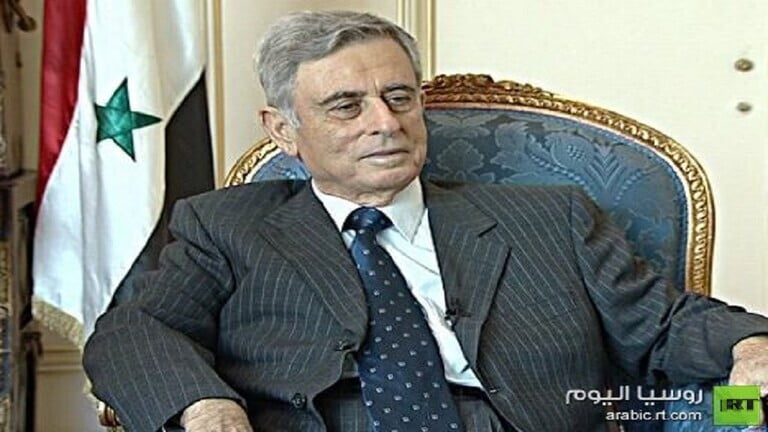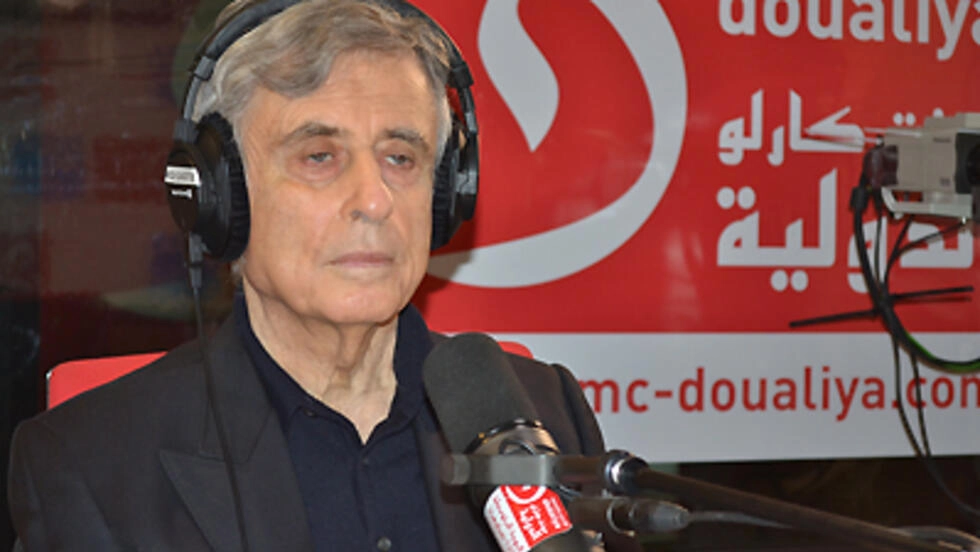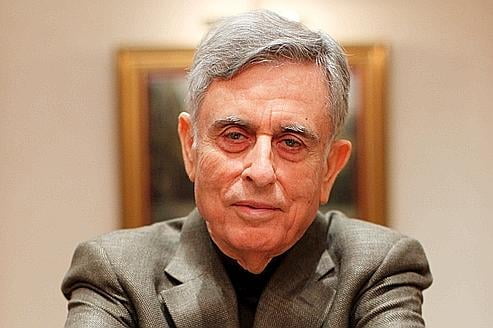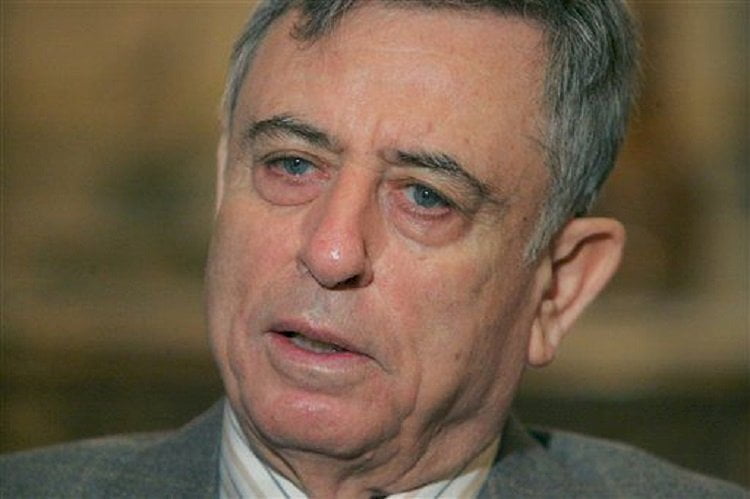Abdel-Halim Khaddam, the former deputy to the Syrian president who defected from the regime in December 2005 following disagreements with President Bashar al-Assad, called for international protection for the protesters in Syria. He warned against the worsening of the situation and its development into an armed conflict between protesters and the regime’s security apparatus. Khaddam directed criticism towards the Arab League, stating that it had been slow in discussing the “crimes” committed in Syria and did not meet the demands of the Syrian people to overthrow the regime.
Khaddam, who resides in Paris, also believed that Iran’s “supportive” stance toward the Syrian regime had not changed despite its calls for reforms. He stated that if the Syrians were to succeed in their uprising, Iranian influence would weaken in Syria, Lebanon, Iraq, and the region as a whole. In an email interview with “Al-Sharq Al-Awsat,” he pointed out Turkey’s ultimate alignment with the Syrian people due to historical relations between the two countries, not to mention family ties.
He also criticized some factions of the Syrian opposition, stating that there were voices within the opposition that had no connection to the reality on the Syrian streets. He mentioned that the opposition had failed to achieve its goals for more than half a century and that the current revolution was the revolution of the Syrian youth.
Here is the text of the dialogue:
How do you interpret the Arab League’s stance towards the Syrian regime, and what is expected from it after the Arab initiative to stop the violence?
- The Arab League Council has been very slow in discussing the heinous crimes in Syria, despite the potential developments in the Syrian situation being the most dangerous to Arab security and stability. The victory of the Syrian people is a victory for the security and stability of Arab countries. Among these victories is the liberation of Lebanon from Iranian dominance, the liberation of Syria from a regime that has become a tool in Iran’s regional strategy. It also restores Iranian influence to its national borders, bringing relief to Iraq and Gulf states. However, the group of decisions they made does not meet the demands of the Syrian people because the main demand is the overthrow of the regime and the establishment of a state for all Syrians, a state where Syrians enjoy freedom, dignity, initiative, and the free choice of a political system. Therefore, considering all those working in the state as part of the regime does not mean, but rather refers to the constitution that grants the head of state absolute powers and holds accountable the civil and military leadership of the regime, along with all individuals who contributed to committing crimes during the Syrian people’s revolution and referring them to a clean and fair judiciary for accountability. After Bashar al-Assad rejected the demands of the Arab League, we expected firmer steps against the regime, at least similar to what the European Union and the United States have done.
How do you interpret the change in Iran and Hezbollah’s stance or rhetoric towards Syria?
- In reality, Iran has not changed its position; rather, it wanted to provide a window to attempt to save the Syrian regime. Thus, it gives the impression that there is a possibility for Bashar al-Assad to accept reforms in exchange for his continued acceptance. I don’t think it’s a coincidence that there is this alignment between the positions of the Arab League and Iran. Again, I am convinced that Arab countries, which are experiencing a crisis in the region and the danger of the regime’s continuation, will not change their stance of rejecting Bashar al-Assad staying in power.
What does Turkey’s position and President Abdullah Gül’s statements indicate? Does it mean that Turkey has reached a point of no return in its relationship with Damascus after Ankara lost confidence in the Syrian regime?
- I believe that the Turkish leadership realizes the impossibility of Bashar al-Assad staying in power, as well as the extent of the Syrian people’s animosity towards him. Therefore, given that the Turkish people have familial, historical, and mutual interest ties with the Syrian people, it is logical to say that the Turkish leadership, with its competence, will remain keen on maintaining strong relations with the Syrian people.
How do you justify the Russian stance, which clings to the Syrian regime?
- I don’t want to speculate too much on this, but the Russian leadership believes that supporting Bashar al-Assad, much like the Soviet Union supported President Hafez al-Assad, can secure a strategic position in the Middle East. Unfortunately, sometimes, narrow vision prevails over broader vision built on the movement of peoples and international interests. Some leaders believe that the Iranian-Syrian alliance is their way to have an active role in the region.
What does the U.S. Secretary of State Hillary Clinton say about respecting the Syrians’ decision not to intervene in Syria, while the Syrian street is raising banners requesting international protection for civilians? How do you explain that?
- If we closely examine the statement by the U.S. Secretary of State, we can see that she holds some Syrian parties responsible for the reluctance of major powers to effectively confront the Syrian regime. In reality, these voices that have emerged from certain factions within the Syrian opposition have no connection to the reality of the Syrian people. They do not experience the magnitude of the grave crimes committed by Bashar al-Assad. Therefore, slogans unrelated to the ongoing conflict between the Syrian people and the existing regime control them. They repeatedly mention Iranian intervention and the Iranian alliance with the Syrian regime. Is the Iranian leadership part of the Syrian people? They do not see the extent of Iran’s interference and criticize the international community’s call to protect the Syrian people. Of course, there may be other factors related to U.S. strategy.
You mentioned Iran’s role and its support for the Syrian regime. What is the reality of this support since the outbreak of the Syrian revolution?
- The Iranian leadership has not concealed its support for the Syrian regime at all levels because it realizes that the regime’s fall would lead to a contraction of its regional strategy within its national borders. It would lose Lebanon, Syria, and certain Palestinian factions, and its role in Iraq would weaken. On the one hand, if the Syrian regime triumphs over the Syrian people, Iran would become the absolute ruler in the region at that point. Regionally, its dominance would be built on factors of political, economic, and social power. In short, the victory of the Syrian people means stability and security for the Arab Mashreq.
What are the forms of Iranian support for the Syrian regime?
- Iran has been making significant efforts to support the Syrian regime for some time, whether through military cooperation, training courses for Syrian officers in Iran, or through cultural and economic activities. Additionally, there has been security cooperation, sending groups of experts, and supplying the Syrian regime with quantities of weapons and equipment used to suppress the revolution.
The Syrians are demanding the overthrow of the regime. Can the regime in Damascus be changed without external intervention?
- The Syrian people are fighting to overthrow the regime and have moved from merely making demands to the daily struggle for change and the establishment of a civil, democratic state. Therefore, they are facing the second-largest military force in the Arab region. Consequently, the responsibility of the international community, especially countries that advocate for the respect of human rights and the right of nations to self-determination, is to assist the Syrian people in accelerating the process of change and transitioning towards rebuilding the country. This is why I and others have called for international intervention to protect the Syrian people in order to achieve their aspirations. This is not just about preventing bloodshed but also about helping Syrians move towards stability and reconstruction. No one has called for international intervention against a national government. The regime in Syria is not a national regime. No one has called for intervention to facilitate the dominance of a foreign state, as this is no longer acceptable in the international arena. Therefore, it is in the interest of the international community for Syria to become a stable state because it serves international security and stability. Here, I want to emphasize that hesitating to support and protect the Syrian people while the current regime continues will lead many to resort to violence after enduring a long period of killing, oppression, humiliation, and poverty. This would make Syria a refuge for extremists from both the Arab and Islamic worlds. At that point, let’s imagine how the situation would be in this sensitive region of the world.
So you are calling for military intervention, and you believe that change or regime change won’t happen with mere toothless measures, is that correct?
- I don’t want to say that, as often toothless measures can carry germs that harm people. The issue is the international community’s cooperation and support for the Syrian people through all available means, including military options if necessary, to prevent the situation from reaching a point that poses a serious threat to our country and to the security and stability of the region. This is particularly important given the complex regional and international conflicts in the Middle East.
What is the reason for the cohesion of the army and security forces alongside the regime and the absence of political defections so far, unlike in other Arab revolutions?
- The cohesion of the army is primarily linked to the social structure of the armed forces and security apparatus, as well as the alignment of interests between the leadership of various components of the military and the regime’s leadership. However, this does not mean that every officer in the army is responsible for the killings. There are many officers who are patriotic and honorable, but they are currently torn between either committing violence or remaining under the umbrella of the regime. I believe that increasing international pressure and significant changes in the positions of Arab states may push national elements within the military to overcome other factors. In such a scenario, the army could play a role in stopping the regime’s crimes and supporting the revolution to bring about change in the country.
Recently, there has been a proliferation of conferences and meetings of the opposition both inside and outside Syria, and there have been discussions about the formation of a national council that is said to be the nucleus of a transitional government. What is your opinion on these developments?
- Let me be frank with you, the revolution in Syria was not launched by any individual or political opposition group. It is happening either from afar, away from the events in the country, or from within under the oppression of the regime. Various opposition groups have been around for more than half a century, but they have failed to change the situation in the country. This revolution was initiated by the youth of Syria, who were educated in the regime’s schools but, at the same time, the regime’s practices created in them a sense of concern for their future and the future of the country.
They were aided in this by technological developments in the field of information gathering and access. They came to see two worlds: one in their own country where there was oppression, tyranny, and corruption by the regime, and the other outside, where there was freedom, democracy, and the ability to express themselves and demand their rights. This second world might have its own injustices, but it also included freedom, including the freedom to criticize the ruler, protest against him, and the ability to change the ruler through the ballot box. This is how things evolved for the youth of Syria, and they launched their revolution and succeeded where all politicians had failed.
These conferences and their outcomes certainly have national elements in them, including the desire for regime change and support for the revolution. However, there is a mistaken reading of the reality. It is the duty of all opposition factions in Syria, whether inside or outside, to support the revolution and not to replace it with solutions or attempts to lead it. Those who have aspirations or visions about the future should go to the ballot boxes after the regime falls.




